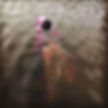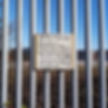
I feel like every blog post I put up on here begins with me saying we are living in strange times, and that such times call for strange stories. But a global pandemic can't be be summed up with the word 'strange'. As a word, it seems to fail somehow; not weighty enough to comprehend the scale of the situation. The pandemic is not strange; it is far beyond that. It wholly and terrifyingly natural. It is confoundingly real. It has waited its turn in a long, long queue with good grace and patience and is now going about its duties with clinical efficiency. The war rhetoric is easily trotted out at such times (especially by the Churchillian wannabe currently blundering around Downing Street) but is utterly unhelpful. This isn't war. It's fate.

As the lockdown started, someone shared links to various streaming sites and I discovered Kanopy, a really great service that gives you free access to lots of documentaries, classic movies and video courses as long as you are a member of a library. We dove into a 23 hour course on The Black Death, hosted by Prof. Dorsey Armstrong in her strong outfits and her toy-rat-infested study. As the Covid-19 pandemic unfolded, so too did the Medieval plague across Dorsey's digital maps, showing how it progressed from (believe it or not) the Wuhan province of China via various trade routes to Europe. It landed in Italy first and hit it very hard, then France, Germany and Spain before finally hitting the UK via Bristol. The parallels have been startling; the lessons learned feel few and far between. Sure, we aren't self-flagellating in the streets to appease a vengeful god, nor wearing bird-beak masks stuffed with sweet smelling posies to guard against the miasma. But, like in the Middle Ages, we saw it coming and did pretty much nothing. We *watched* it coming. We almost seemed to embrace its coming, like we'd have been sad if we'd missed out.

The most galling thing of this precise, present moment (17:27, 12/04/2020 [aside, of course, from the dawning realisation that our beloved government have thrown us under the Covid bus with their 'herd immunity' nonsense]) are the slick lockdown adverts of the major supermarkets and food services. The branding opportunity seen by Tesco or bloody McCain to push their 'all together' visions of happy capitalism, shoving actors into nurse outfits and making them hold plates of perfectly cooked chips as if they could be the secret ingredient for a vaccine. I'm starting to wonder if my biggest fear in all of this is us not learning anything at all from the situation. Despite all the pictures of smog-free city skylines and the weekly applause of the impossible heroics of our underpaid and underfunded doctors, we still crave the 'normality' we had before; we want it back so we can nestle down into it and await whatever lurks next in the doomsday queue. We seem happy to accept our fate as perpetual storm-weatherers.
There have been hopeful mutterings that the Black Death ushered in the renaissance and the world changed for the better. Dorsey would be the first to point out the various flaws in that reasoning. Truth is, beneath it all, we are not so far removed from those Middle Ages peasants and knaves because we still cannot comprehend or understand our most basic vulnerabilities; how to live well, how to die well, how to be well to each other. The virus, on the other hand, has teamwork nailed. But we will create because we always do, and there will be lockdown novels and films and videogames and other things because our creativity is our one constant, our greatest tool. The most wonderful thing I've seen in this precise, present moment (17:45) is a tweet noting the importance of the Creative Arts as lifelines at trying times, and how such things should, perhaps, be more highly cherished in our funding and education systems. We can but hope.

And so; here's a little offering from me to the temple of the Arts. I tried to turn my mind to writing new things at the start of the lockdown, but I, like many others found it to be something of a doomed hope. Its very hard to write in the midst of a storm; we have to seek shelter first. So, instead, I reached to some tales I wrote in the relative peace (ha!) of last year and have put together this: Yawn: An EP of Stories. A seven track collection of weird tales glued to some funky homemade beats. They are not about the pandemic per se, but seemed the most fitting for the present moment. They are tales of change and transition, where forms and genders and times are fluid, where witches play on swings and wizards swallow jumbo jets. Perhaps, for a while, the strange in fiction can be something of a respite, an escape, or a balm of some kind. It is whatever it needs to be. That's what's so wonderful about it.
Find Yawn here on Bandcamp where you can choose the price of download, and that price can be absolute zero. Or watch the live launch video on YouTube (which our weak willed internet connection struggled with, hence the poor quality. Hey, here's an idea actually: what if we understood broadband to be a modern necessity and we made sure everyone was connected up to it for free? Interesting thought, no? A better idea than, say, fear driven economic severance from a union...). Or simply listen to it here:
Also, check out my pal Geisterhaus's latest single Idle Hands, which likely comes from the same impulse to crack the lockdown with creativity: